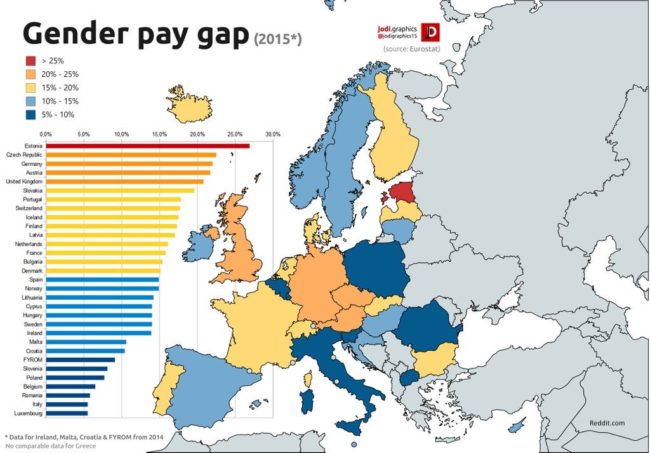Answer to the public consultation from the EU Commission on “equal pay”
05.04.19
The gender pay gap is the result of many complex factors including vertical and horizontal occupational segregation and direct pay discrimination but is mainly linked to what is called the “motherhood penalty”. In a society where unpaid care work (household work, caring for children, disabled, elderly and frail) is not valued, the motherhood penalty refers to the pay gap (care gap) between mothers and childless women.

The fact that mothers suffer a wage penalty raises major concerns that go beyond those highlighted by gender inequality. This ultimately questions the capacity of societies to manage a sustainable balance between their economic aim of active female participation in paid work and the social aims of providing a fair distribution of income to support the reproduction and rearing of children.
Moreover, the absence of a definition of the concept of work of equal value, including clear evaluation criteria for the comparison of different functions, constitutes a major obstacle for victims of wage discrimination seeking legal action. The inclusion in European Union legislation, enforceable in national legislation, of such a definition and criteria for classification and evaluation of functions could help victims of wage discrimination to bring an action before the national courts.
In Chapter I, this paper will present a short exposition of the gender pay gap in the European Union. In Chapter II, it will explore the underlying cause of the gender pay gap, which arises from the unequal distribution of unpaid care work. In Chapter III, summary will be presented of current situation in Belgium on equal pay, and finally there will be some recommendations in Chapter IV.
Answer Public Consultation 5th April
MMM Contribution EU Survey
The New EU Gender Equality Roadmap : A Call for Inclusion of Mothers
04.03.25
The European Commission’s initiative on a new Gender Equality Roadmap post-2025, marks a significant step forward in addressing gender disparities across the European Union. Make Mothers Matter (MMM
Breaking the Cycle: Gender Equality as a Path to Better Mental Health
18.03.25
The Council of the European Union has taken a decisive step in recognising the vital connection between gender equality and mental health.
Europe Must Listen to Mothers: Our landmark report heads to the European Parliament
28.08.25
On 22 September 2025, the voices of mothers will take centre stage in Brussels. For the first time, Make Mothers Matter (MMM) will present its State of Motherhood in Europe








